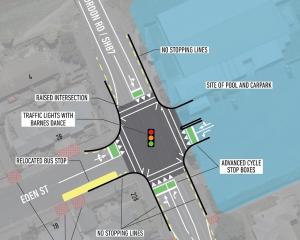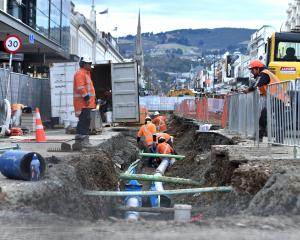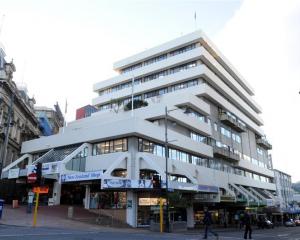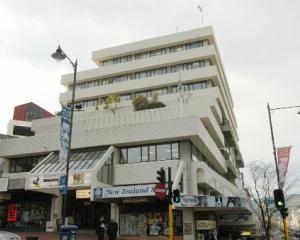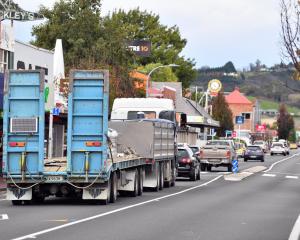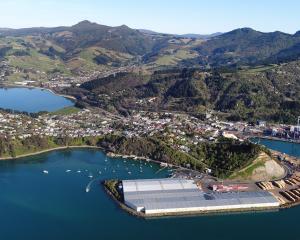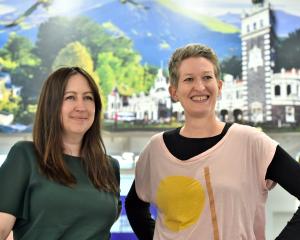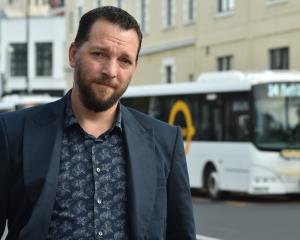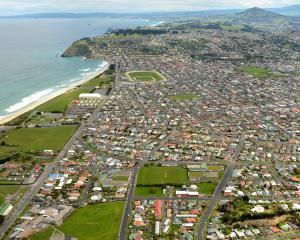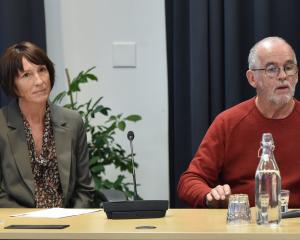When Dunedin Mayor Peter Chin spoke to the final city council meeting earlier this month, his words read like a valedictory speech, a farewell from office, and such has proved to be the case.
His campaign offered few positive ideas for the future for worried Dunedin ratepayers and residents, especially given the debt load agreed by the two councils Mr Chin had led for the past six years.
He may be remembered with greater charity in the decades ahead, as he had hoped, but on Saturday voters punished him as harshly as they did two other senior city councillors associated with him, Richard Walls - a former mayor - and Michael Guest.
Those especially who supported the council's share of funding the Forsyth Barr Stadium did not appear to be wounded by voters, despite so much negative campaigning by groups such as DCC Inc (formerly Stop The Stadium): seven were re-elected.
It was, after all, not a particularly logical reason to vote out Mr Chin and his supporters, but was perhaps understandable.
The Mayor-elect, Dave Cull, has promised to "rebuild trust", "listen to the community", to "cut operating costs" and "limit rate rises to affordable levels" - all fine-sounding sentiments that actually mean not much in practical terms.
The functions of the community plans, which fulfill so much of a local body's capital planning today, provide a formal opportunity for citizens to be heard.
The question of what constitutes "affordable" rates in Dunedin for the next decade or more has essentially been determined by the spending practices and debt commitments of the past two councils.
Mr Cull's Greater Dunedin group, which succeeded with four seats on the council, now has a further opportunity to built itself into a formidable ticket.
The mix of experienced councillors and two novices Richard Thomson and Jinty MacTavish together with the return of Lee Vandervis, imply a council that will acknowledge public concerns and pressures far more promptly than occurred under Mr Chin's leadership, especially in the most recent term.
Fresh faces abounded elsewhere in Otago as voters sought change.
Significantly, several of the new district mayors also campaigned on a cost-reducing platform.
Long-standing Clutha incumbent Juno Hayes was defeated by newcomer Bryan Cadogan, and Central Otago replaced its three-term mayor, Malcolm Macpherson, with his deputy, Tony Lepper.
The scale of Dr Macpherson's defeat, and the possible reasons for it, were a talking point throughout the region at the weekend.
Vanessa van Uden became the first woman mayor of the Queenstown district, easily defeating her male rivals.
Ms van Uden, who has just one term's experience as a councillor, will replace the retiring mayor, Clive Geddes.
She will lead a council faced with immense and expensive challenges in the immediate future, as the fastest-growing area in the country must deal with debt and with vital infrastructure expansion and services while trying to maintain and build on its international reputation as a year-round visitor-destination.
Waitaki voters, meanwhile, re-elected Alex Familton for a second term.
Nationally, Invercargill returned Tim Shadbolt with a convincing majority over country music singer Suzanne Prentice, perhaps reflecting her low-key campaign and her rival's unmatched public profile.
Sitting Mayor Kerry Prendergast only just holds Wellington and may be defeated when all the votes are counted, and Bob Parker easily won Christchurch from Jim Anderton, helped, no doubt, by his outstanding public profile during the Christchurch earthquake, but - given this vote of confidence from his citizens - will now be expected to match word with deed.
Much public attention was directed to Auckland where voters were faced for the first time with selecting a mayor for a unified city.
They chose both a left-leaning candidate in Len Brown and a left-leaning council, ejecting relatively heavily the incumbent mayor of Auckland, John Banks, a former National Party cabinet minister, for a man whose popularity in the poorer suburbs and cities of greater Auckland was built on his appeal among ethnic minorities, in particular, and on a very active campaign.
His status now as mayor of New Zealand's largest conurbation has the potential to carry with it great political power - a prospect that has not been lost on the major parties.
While there will be regret in some quarters in Otago that experienced representatives such as Messrs Chin, Hayes and Macpherson, Walls and Guest have likely been lost to local body service - collectively their knowledge is vast of what is today a complex and substantial branch of government - elections provide an opportunity for everyone to look forward.
The successes and failures of the past, the controversies and arguments of yesterday, best belong there so that all effort can be focused on the challenges ahead, to building a safe, secure and affordable future for every citizen.
And to that end we all owe a considerable debt of thanks to those who put their names forward to represent our interests; but what a pity the level of polling remains so low.


